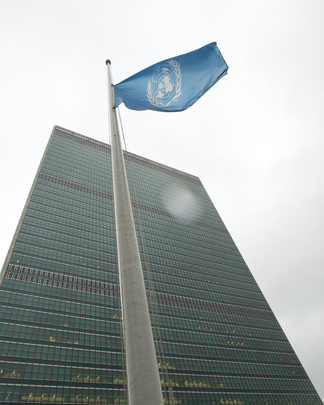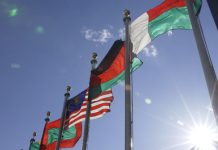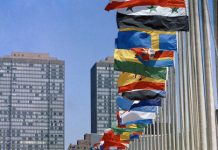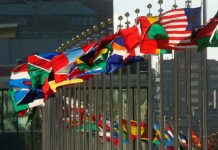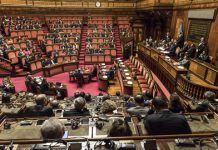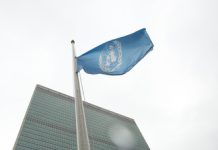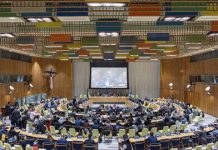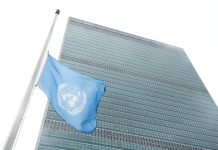Aid teams cite huge challenges in tackling new Sudan cholera outbreak
Protecting war-weary people in Sudan from a second deadly cholera outbreak is proving a huge challenge for aid teams after more than 16 months of heavy fighting, combined with flooding and ongoing access obstacles, they said on Friday.
According to the UN World Health Organization (WHO), 658 cases of cholera have been reported since 12 August, with 28 deaths. The last outbreak of cholera in May saw more than 11,300 cases and at least 300 deaths.
In addition to cholera, famine is still “ongoing” in Zamzam camp near El Fasher town, adding to the already dire humanitarian situation that’s been made worse by several weeks of heavy rainfall.
Here’s Kristine Hambrouck, UNHCR Representative in Sudan:
“I think the needs are huge in Sudan; we are talking about people dying of hunger, we have conflict, we have protection issues, we have displacements on a daily basis; the needs are just huge and this is just one, on top of all the other ones that we somehow have to reprioritize and make sure that investments are being made.”
In addition to cholera, Sudan is also experiencing multiple simultaneous disease outbreaks with malaria, measles and dengue all potential killers.
The UN health agency said that resources and local capacity to detect and respond to outbreaks remain limited, particularly in hard-to-reach areas such as the Darfurs and Kordofan states, although a vaccination campaign concluded on Thursday in Kassala state on the other side of the country.
Gaza: first polio case confirmed in war-shattered enclave
To Gaza, where a 10-month-old girl has been paralyzed by the first case of polio to be detected in 25 years.
Head of the UN World Health Organization (WHO) Tedros Adhanom Ghebreyesus expressed deep concern at the development and said that the infant, from Deir Al Balah, developed paralysis in the lower left leg and was in a stable condition.
In an online post, Tedros added that the UN health agency had confirmed via genomic sequencing that the girl’s infection was linked to the poliovirus type 2 variant, detected in environmental samples collected in June from Gaza wastewater.
He said that given the high risk of poliovirus spread in Gaza and the region, the Palestinian health authorities together with the WHO and the UN Children’s Fund, UNICEF, “are working to implement two rounds of polio vaccination in the coming weeks to halt transmission”.
The UN agency for Palestine refugees, UNRWA, added that its medical teams will support the delivery of vaccines to its clinics and mobile health teams.
The development comes as the UN’s top aid official in the Occupied Palestinian Territory warned that mass evacuations in Gaza “choke (people’s) survival” and continue to severely constrain aid operations.
During August alone, Israeli forces “issued 12 evacuation orders, forcing almost 250,000 people to move yet again”, said Muhannad Hadi, Humanitarian Coordinator for the Occupied Palestinian Territory.
UK hate speech in spotlight as rights experts urge action
A top rights committee of UN-appointed independent rights experts has urged action from the UK Government to tackle hate speech, following a wave of riots, fuelled by extremist statements published online.
In a press conference in Geneva, the Committee for the Elimination of Racial Discrimination expressed its concern about the “persistence of hate crimes, hate speech and xenophobic incidents on various platforms and by politicians and public figures” in the United Kingdom.
Committee Member Gun Kut said that there was particular concern “about recurring racist acts and violence” against ethnic and religious minorities, migrants, refugees and asylum-seekers by extremist far-right and white supremacist individuals and groups”, including the violent mobs that battled police in several UK towns and cities in July and early August:
“Not only in the UK but everywhere else there is a direct connection between the activities, actions of public figures and racial discrimination…Yes, there is a direct link between what the politicians and public figures say and what happens afterwards.”
In its scheduled review of the UK, the Committee also expressed concern about what it called the “disproportionate impact” of police stop-and-search practices, including strip searches, on ethnic minorities and especially children.
The panel also highlighted the use of “excessive and deadly force by law enforcement, the lack of accountability, and the inadequate support for victims’ families, all of which disproportionately affect people of African descent and other ethnic minorities”, before pointing to concerns about institutional racism within policing and the criminal justice system.
Music composed and produced by Joachim Harris. All rights reserved
Source of original article: United Nations (news.un.org). Photo credit: UN. The content of this article does not necessarily reflect the views or opinion of Global Diaspora News (www.globaldiasporanews.com).
To submit your press release: (https://www.globaldiasporanews.com/pr).
To advertise on Global Diaspora News: (www.globaldiasporanews.com/ads).
Sign up to Global Diaspora News newsletter (https://www.globaldiasporanews.com/newsletter/) to start receiving updates and opportunities directly in your email inbox for free.


